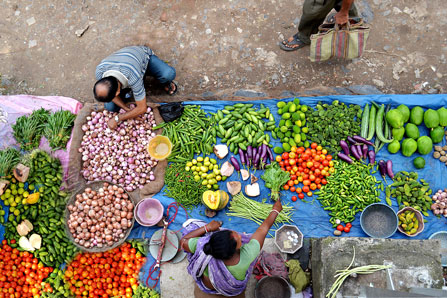
WASHINGTON, DC – Senator Dan Coats (R-Ind.) joined with the entire Senate this week to unanimously pass legislation that would address global hunger and bolster U.S. national security.
The Global Food Security Act of 2016 coordinates U.S. assistance programs, including the Feed the Future Initiative, so that there is a comprehensive strategy for our agricultural development programs that use American agricultural resources and know-how to more aggressively tackle chronic hunger abroad.
“Hunger threatens the security and economic stability of nations around the world,” said Coats. “This legislation, which I am proud to cosponsor, will help individual families in need and nations as a whole.”
The Global Food Security Act was introduced by Senators Johnny Isakson (R-Ga.), and Bob Casey (D-Penn.) and co-sponsored by Coats and Senators Bob Corker (R-Tenn.), Ben Cardin (D-Md.), John Boozman (R-Ark.), Susan Collins (R-Maine), Chris Coons (D-Del.), Dick Durbin (D-Ill.), Dianne Feinstein (D-Calif.), Kirsten Gillibrand (D-N.Y.), Mark Kirk (R-Ill.), Amy Klobuchar (D-Minn.), Marco Rubio (R-Fla.), and Sheldon Whitehouse (D-R.I.).
Background:
The Global Food Security Act is based on the premise that global food insecurity, or the lack of access to affordable, nutritious food, impacts not only developing nations’ economies and productivity, but also the international economy and U.S. national security. The Global Food Security Act of 2016 recognizes the important role that agricultural development plays in economic growth, including for women and small-scale producers, as well as the value of leveraging resources and expertise from U.S. academic institutions, non-governmental organizations, faith-based groups, private voluntary organizations, and the private sector.
Specifically, the Global Food Security Act of 2016 would:
- Require the administration to develop a whole-of-government strategy to address global food insecurity and hunger. The strategy would emphasize agricultural development, improving maternal and child nutrition, building the resilience of communities, and civil society engagement.
- Ensure the alignment of U.S. assistance with developing countries’ own initiatives to enhance agricultural productivity, household income, local economies, and food and nutrition security to work toward the ultimate goal of transitioning countries and communities away from the need for U.S. assistance under this Act.
- Improve existing monitoring and evaluation practices to ensure the effective use of U.S. taxpayer dollars, including enhanced reporting requirements to Congress.
- Create the Emergency Food Response Fund by authorizing use of the International Disaster Assistance account to continue to respond to the emergency food needs of communities affected by natural or manmade disasters.
- Require that the administration report to Congress and to the American people annually about the strategy, its results, and the use of foreign assistance funds.
The Senate Committee on Foreign Relations passed the Global Food Security Act of 2016 by voice vote on March 20, 2016.
 WYRZ.org 98.9 WYRZ – The Voice of Hendricks County
WYRZ.org 98.9 WYRZ – The Voice of Hendricks County





